Rifen Lin
Skeletons Speak Louder than Text: A Motion-Aware Pretraining Paradigm for Video-Based Person Re-Identification
Nov 17, 2025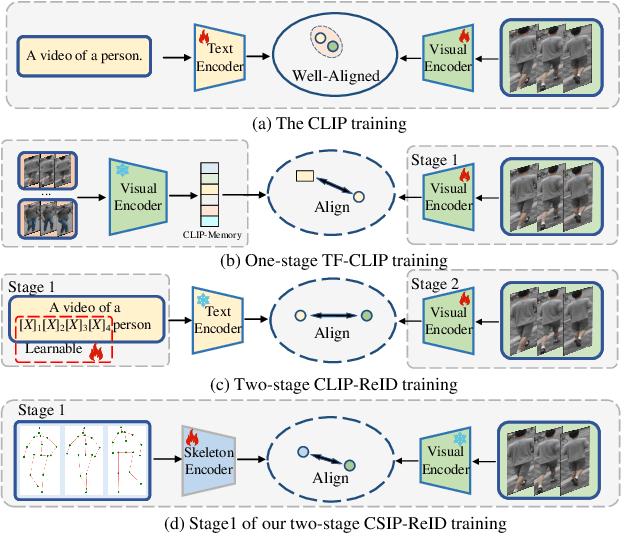
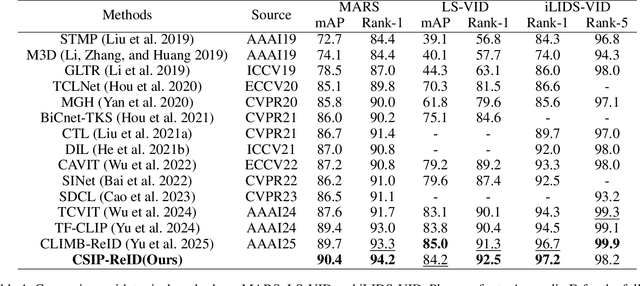
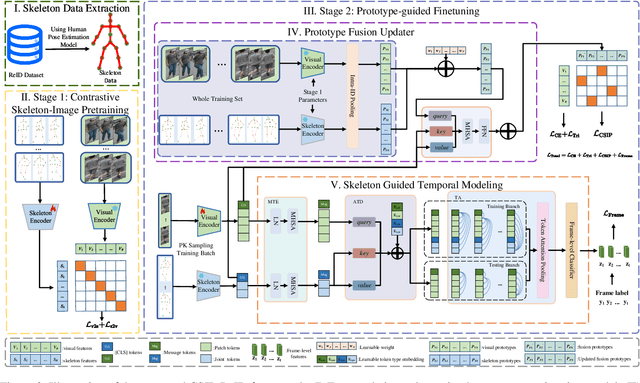

Abstract:Multimodal pretraining has revolutionized visual understanding, but its impact on video-based person re-identification (ReID) remains underexplored. Existing approaches often rely on video-text pairs, yet suffer from two fundamental limitations: (1) lack of genuine multimodal pretraining, and (2) text poorly captures fine-grained temporal motion-an essential cue for distinguishing identities in video. In this work, we take a bold departure from text-based paradigms by introducing the first skeleton-driven pretraining framework for ReID. To achieve this, we propose Contrastive Skeleton-Image Pretraining for ReID (CSIP-ReID), a novel two-stage method that leverages skeleton sequences as a spatiotemporally informative modality aligned with video frames. In the first stage, we employ contrastive learning to align skeleton and visual features at sequence level. In the second stage, we introduce a dynamic Prototype Fusion Updater (PFU) to refine multimodal identity prototypes, fusing motion and appearance cues. Moreover, we propose a Skeleton Guided Temporal Modeling (SGTM) module that distills temporal cues from skeleton data and integrates them into visual features. Extensive experiments demonstrate that CSIP-ReID achieves new state-of-the-art results on standard video ReID benchmarks (MARS, LS-VID, iLIDS-VID). Moreover, it exhibits strong generalization to skeleton-only ReID tasks (BIWI, IAS), significantly outperforming previous methods. CSIP-ReID pioneers an annotation-free and motion-aware pretraining paradigm for ReID, opening a new frontier in multimodal representation learning.
MoChat: Joints-Grouped Spatio-Temporal Grounding LLM for Multi-Turn Motion Comprehension and Description
Oct 15, 2024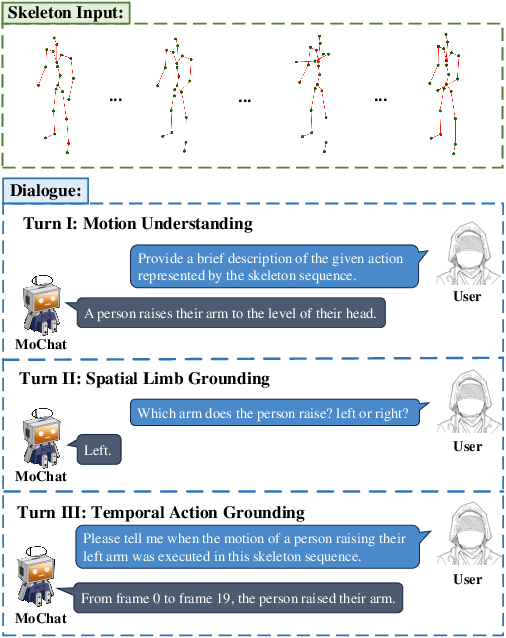
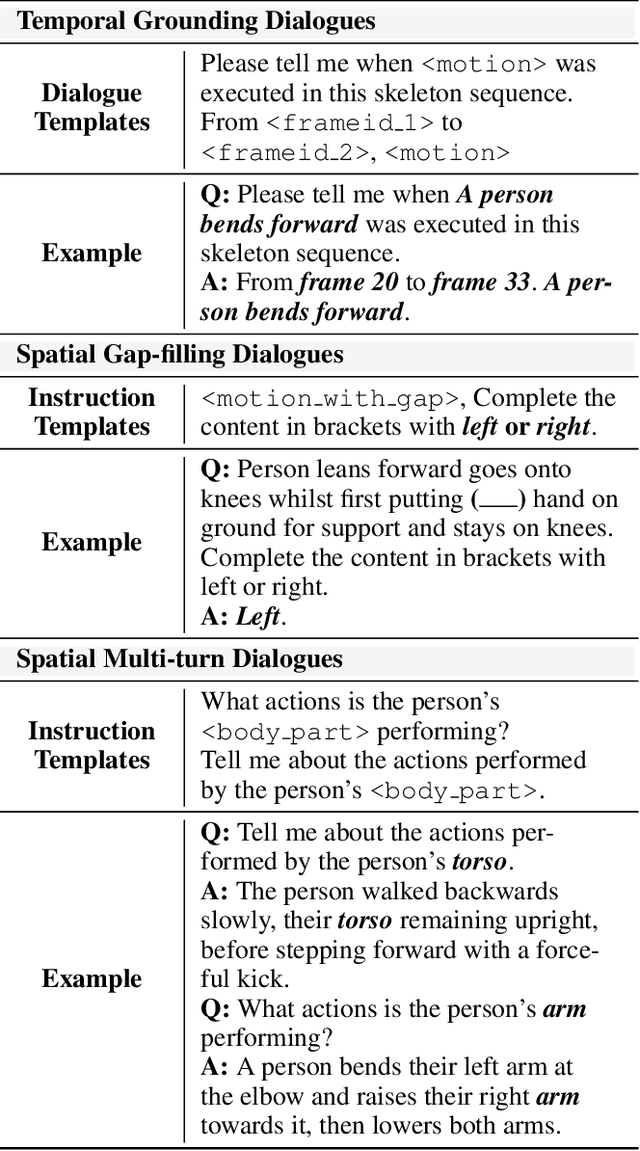
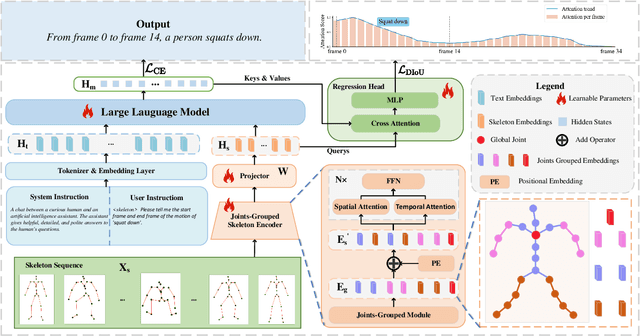

Abstract:Despite continuous advancements in deep learning for understanding human motion, existing models often struggle to accurately identify action timing and specific body parts, typically supporting only single-round interaction. Such limitations in capturing fine-grained motion details reduce their effectiveness in motion understanding tasks. In this paper, we propose MoChat, a multimodal large language model capable of spatio-temporal grounding of human motion and understanding multi-turn dialogue context. To achieve these capabilities, we group the spatial information of each skeleton frame based on human anatomical structure and then apply them with Joints-Grouped Skeleton Encoder, whose outputs are combined with LLM embeddings to create spatio-aware and temporal-aware embeddings separately. Additionally, we develop a pipeline for extracting timestamps from skeleton sequences based on textual annotations, and construct multi-turn dialogues for spatially grounding. Finally, various task instructions are generated for jointly training. Experimental results demonstrate that MoChat achieves state-of-the-art performance across multiple metrics in motion understanding tasks, making it as the first model capable of fine-grained spatio-temporal grounding of human motion.
 Add to Chrome
Add to Chrome Add to Firefox
Add to Firefox Add to Edge
Add to Edge